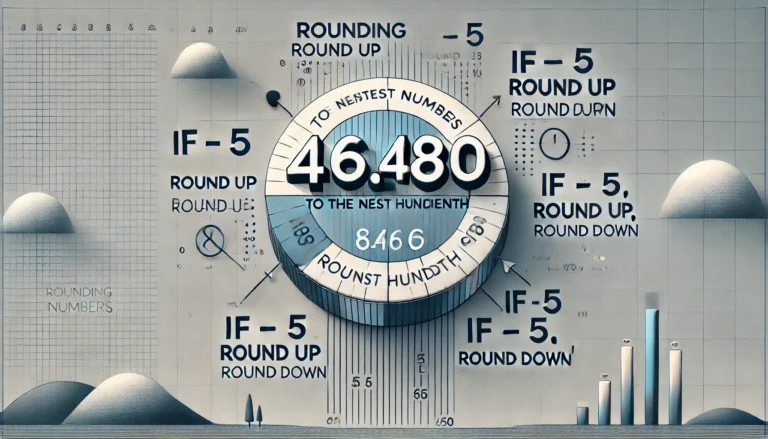
Umera Ahmed is a name that resonates with readers of Urdu literature across the world. Her storytelling is a breath of fresh air, blending thought-provoking themes with a compelling narrative structure. From spiritual enlightenment to social issues, her writing leaves a lasting impression on her audience. Her profound and emotionally charged novels have earned her an avid fanbase, making Umera Ahmed books a staple in every book lover’s collection.
In this article, we’ll take a deep dive into Umera Ahmed’s unique storytelling style. We’ll explore how she weaves her tales, captures her audience, and continues to be one of the most influential Urdu writers of our time.
1. Thematic Depth: The Essence of Umera Ahmed’s Writing
One of the most notable features of Umera Ahmed books is their thematic richness. Unlike many contemporary writers who focus on entertainment, Umera brings complex social, ethical, and religious themes to life in her stories. Her works often delve deep into human psychology, moral dilemmas, and the intricacies of relationships.
Take for example her novel “Peer-e-Kamil”, which highlights the spiritual journey of two protagonists struggling to find their way in a society filled with superficial values. Themes of spiritual awakening, self-discovery, and redemption are powerfully portrayed, offering readers not just a story but a moral reflection.
Umera has a remarkable ability to engage her readers by tackling sensitive social issues. In her book “Zindagi Gulzar Hai”, for instance, she portrays gender disparities and how strong women can overcome societal challenges to make their mark. Her writing is filled with subtle social commentary that reflects the real issues faced by modern-day Pakistan.
Umera Ahmed’s Unique Themes Include:
- Spirituality and Faith: Many of her books explore the concept of faith and personal growth.
- Social Inequality: Her works often present the problems of class division and gender roles.
- Moral Dilemmas: Umera’s stories frequently put her characters at crossroads, asking the readers to reflect on right and wrong.
2. Character Development: Breathing Life into Fictional Figures
Another striking feature of Umera Ahmed books is the strength of her character development. Her characters are often flawed yet relatable, making them resonate with readers on a personal level. Whether it’s a protagonist struggling with inner conflicts or an antagonist with a complex backstory, each character in her novels feels real.
Take, for example, Kashaf Murtaza from “Zindagi Gulzar Hai”. Kashaf’s story of struggle, resilience, and self-determination is inspirational. Umera masterfully portrays Kashaf’s journey from poverty to success, which becomes symbolic of the challenges faced by many women in patriarchal societies.
On the other hand, Imama Hashim from “Peer-e-Kamil” is another unforgettable character. Her decision to break free from the chains of familial expectations and societal norms in pursuit of spiritual growth speaks volumes about Umera Ahmed’s storytelling prowess.
Key Traits of Umera’s Characters:
- Relatable and Human: They are flawed but constantly growing, reflecting human nature.
- Courageous and Independent: Many of her female characters challenge societal norms.
- Emotionally Complex: They undergo significant personal growth, keeping readers emotionally invested.
3. Narrative Style: Simple Yet Powerful
Umera Ahmed’s narrative style is unique in its simplicity. She doesn’t rely on ornate language or complicated prose. Instead, she uses concise and straightforward dialogue to make her stories accessible to readers from all backgrounds. This simplicity in style, however, does not undermine the depth of her storytelling.
Her dialogues are often peppered with philosophical musings, engaging the reader on a more intellectual level. Her ability to seamlessly incorporate Urdu poetry and traditional proverbs into her narrative adds a layer of cultural richness that’s hard to find in modern literature.
In Umera Ahmed books, her storytelling tends to follow a linear pattern but it’s her pacing and timing that keeps readers glued. The way she gradually builds tension, crafts emotional peaks, and brings resolution, is masterful. Whether it’s a moment of heartbreak or a scene filled with joy, Umera ensures that every twist and turn resonates with her audience.
Key Elements of Umera’s Narrative Style:
- Simplicity and Clarity: Her writing is easy to follow, but filled with depth.
- Philosophical Insights: The dialogues often have deeper meanings.
- Cultural Richness: Her stories reflect Pakistani culture, especially through the use of proverbs and poetry.
4. Realism in Storytelling: Capturing the Essence of Society
Umera Ahmed’s ability to capture the essence of real-life challenges sets her apart. Her novels reflect societal issues that are both timely and timeless, offering readers a glimpse into the realities of life in Pakistan. Whether it’s issues of domestic abuse, gender inequality, or class divide, her stories mirror the socio-political landscape of the country.
In her novel “Amarbail”, Umera Ahmed takes a closer look at corruption within political institutions and how it affects everyday people. Similarly, her book “Thora Sa Aasman” deals with the intricacies of familial relationships and the sacrifices made to uphold societal expectations.
Her portrayal of societal issues isn’t preachy, but rather reflective. She presents the struggles of ordinary people, leaving the audience with food for thought. The realism in her stories allows readers to connect with the characters, situations, and the moral dilemmas presented in the plot.
Societal Themes Explored by Umera:
- Class Struggles: The divide between the rich and poor is a recurring theme.
- Political Corruption: She sheds light on the darker side of politics in Pakistan.
- Gender Dynamics: Many of her stories focus on the challenges women face in conservative societies.
5. Impact on Urdu Literature and Media Adaptations
Over the years, Umera Ahmed books have not only shaped the landscape of Urdu literature but also found their way into television and cinema. Many of her novels have been adapted into popular TV dramas, bringing her stories to a broader audience.
For instance, the TV adaptation of “Zindagi Gulzar Hai” starring Fawad Khan and Sanam Saeed became a massive hit, winning the hearts of viewers both in Pakistan and abroad. Similarly, “Meri Zaat Zarra-e-Benishan” has been adapted for television, captivating audiences with its emotional depth and powerful themes.
Her ability to write stories that resonate with the public, combined with strong media presence, has secured her place as one of the most influential modern Urdu writers. Her work continues to inspire future generations of writers, directors, and actors.
Umera’s Contribution to Media:
- Popular TV Drama Adaptations: Many of her books have been successfully adapted into high-rated TV series.
- Inspiring New Writers: Her storytelling style has become a benchmark for upcoming writers in the Urdu literary scene.
- Global Appeal: Umera Ahmed’s works have crossed borders and gained international recognition, especially through online platforms like Netflix and YouTube.
Conclusion
The unique storytelling style of Umera Ahmed has left an indelible mark on Urdu literature. Through her profound themes, relatable characters, and simple yet powerful narrative, she has redefined the art of writing in Urdu. Umera Ahmed books aren’t just stories; they’re reflections of society, filled with moral lessons, emotional depth, and social commentary.
Whether you’re a fan of deep philosophical discussions or enjoy well-developed characters facing real-world challenges, Umera Ahmed’s works are sure to captivate you. With each novel, she manages to weave stories that resonate on both an emotional and intellectual level, ensuring that her readers walk away enriched by the experience.
Key Features of Umera Ahmed’s Storytelling:
- Thematic Depth: Rich exploration of social, moral, and spiritual themes.
- Relatable Characters: Complex, emotionally compelling figures who grow throughout the story.
- Simple Yet Powerful Language: Her prose is accessible but filled with meaning.
- Realism: Her stories reflect societal challenges, making them more relatable to the average reader.
- Media Impact: Her novels have been successfully adapted into popular TV dramas, expanding her reach.
Meta Description:
Explore the profound thematic depth, relatable characters, and cultural richness of Umera Ahmed books. Discover how her storytelling style redefines Urdu literature.






